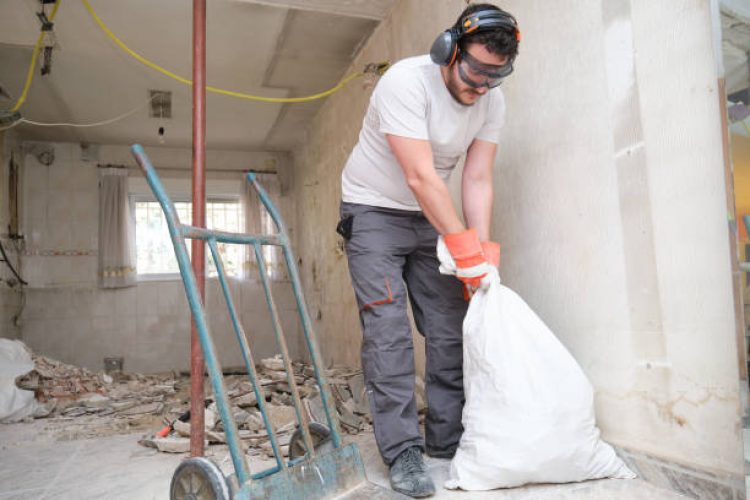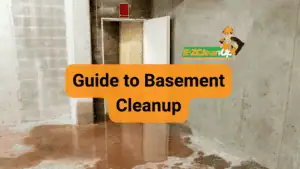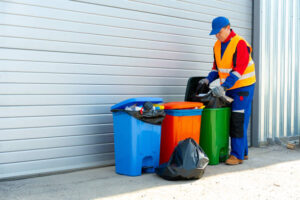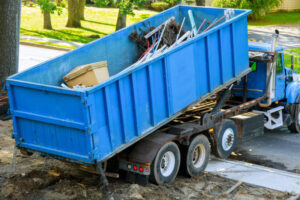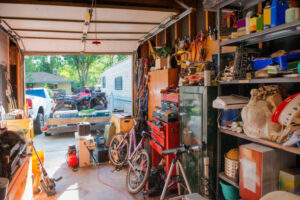Home renovations are exciting transformations that breathe new life into living spaces, but they come with a significant challenge that many homeowners underestimate: debris disposal. Whether you’re updating a single bathroom or undertaking a whole-house renovation, the sheer volume of waste generated can be overwhelming. According to the EPA, the average renovation produces around 60 pounds of waste per square foot, making waste management an essential part of your project plan.
The construction and demolition (C&D) waste problem in America is staggering. EPA estimated that 600 million tons of C&D debris were generated in the United States in 2018, which is more than twice the amount of generated municipal solid waste. Even more concerning, nearly 70% of construction waste in the U.S. is generated by residential projects, meaning homeowner renovations are a major contributor to this waste stream.
This comprehensive guide explores how dumpster rentals provide the ultimate solution for managing renovation debris efficiently, safely, and sustainably. From understanding the types of waste your project will generate to choosing the right disposal method, we’ll cover everything you need to know to make your renovation cleanup as smooth as your renovation itself.
Understanding Renovation Debris: What You’re Really Dealing With
The Scale of the Problem
Before diving into solutions, it’s crucial to understand the magnitude of renovation waste. It is estimated that as much as 30% of the total weight of building materials delivered to a building site can end up as waste. In the United States, around 170 million tonnes of construction and demolition waste was generated during 2003, of which 48% was estimated to be recovered.
The waste generation problem has only intensified over time. C&D waste generation in the U.S. increased by 342% from 1990 to 2018. Between 2005 and 2018, C&D waste levels grew more than 10x faster than from 1990 to 2005. This explosive growth underscores the urgent need for effective waste management solutions.
Types of Renovation Debris
Renovation projects generate diverse types of waste, each requiring specific handling methods:
Structural Materials:
- Drywall and plaster
- Wood framing and flooring
- Concrete and masonry
- Roofing materials including shingles and tiles
- Insulation materials
Fixtures and Components:
- Old appliances
- Cabinets and countertops
- Windows and doors
- Plumbing fixtures
- Electrical components
Finishing Materials:
- Flooring materials (carpet, tile, hardwood)
- Paint cans and supplies
- Trim and molding
- Hardware and fasteners
Hazardous Materials:
- Lead-based paint (in homes built before 1978)
- Asbestos-containing materials
- Treated lumber
- Certain adhesives and solvents
Concrete and masonry debris form the bulk of renovation waste by weight. These materials can be crushed for use as aggregate in new projects, while intact bricks and blocks often find new applications in other construction work.
The Challenges of DIY Renovation Debris Disposal
Volume Overwhelming Regular Waste Services
One of the biggest misconceptions homeowners have is that regular garbage pickup can handle renovation debris. Your regular dumpster will certainly not hold even the bare minimum of the waste produced. For this reason, you cannot sit pretty and rely on your normal garbage pickup.
As a result of your home renovations, you may have more waste to dispose of than what can be accommodated by your regular garbage pickup schedule. The amount of waste produced will not fit in a standard dumpster, not even the basic minimum. Because of this, you can’t just sit back and rely on your regular waste pickup.
Transportation and Logistics Nightmares
Managing renovation debris through multiple trips to disposal facilities presents numerous challenges:
Vehicle Limitations: Most homeowners don’t have vehicles capable of hauling large quantities of heavy debris safely. You may need to make multiple trips to the dump, and if you don’t have a large enough vehicle, you may have to rent one.
Time Consumption: Trying to dispose of these items on your own can be time-consuming and difficult. You may need to make multiple trips to the dump, and if you don’t have a large enough vehicle, you may have to rent one.
Hidden Costs: The DIY approach often includes multiple expense categories that quickly add up: vehicle rental fees, fuel costs, disposal fees at facilities, and the significant time investment required.
Safety and Health Risks
Improper debris management creates serious safety hazards throughout your renovation project:
Physical Hazards: Long-term accumulation of construction waste in your home’s attic is hazardous. Your child might even get cut or experience other injuries when playing with the piled-high garbage. The majority of construction trash is made up of broken glass and ceramic shards that can seriously hurt an unwary individual.
Fire and Environmental Risks: This debris can create tripping hazards, and it can also be a fire hazard if it includes flammable materials.
Pest Problems: Rats and mice may hide in your home if, for example, you pile the trash in a corner while you wait for garbage pickup.
How Dumpster Rentals Solve Renovation Debris Challenges
Comprehensive Waste Capacity
Dumpster rentals are specifically designed to handle the volume and variety of debris that renovations produce. Roll-off dumpers can help you to remove all the extra waste altogether. These dumpers are available in various sizes, so you can choose the one that fits your budget and requirement.
The variety of available sizes ensures there’s a perfect fit for any project scale:
- 10-yard dumpsters: Ideal for small bathroom renovations or single-room projects
- 20-yard dumpsters: Perfect for kitchen remodels or multiple-room renovations
- 30-yard dumpsters: Suitable for whole-house renovations or major additions
- 40-yard dumpsters: Designed for the largest residential projects
Convenience and Time Savings
The convenience factor of dumpster rentals cannot be overstated. A dumpster rental service is convenient for homeowners who are renovating their homes. The dumpster rental company will drop off and pick up the dumpster at your location, so you don’t have to worry about transporting the waste yourself. Additionally, you can choose the size of the dumpster based on your needs, ensuring that you have enough space for all the waste from your renovation project.
Flexible Timing: A phone call is enough to get your dumpster rental scheduled and delivered, saving you the hassle of multiple trips to the landfill.
Work at Your Pace: Projects like roofing, remodeling, and estate cleanouts are not always possible to complete in one day. Renting a dumpster gives you multiple days to work with a dedicated waste receptacle, letting you work on your project at your own pace.
Professional Waste Management
When you rent a dumpster, you’re not just getting a container – you’re accessing professional waste management services that ensure proper disposal methods. With a rental dumpster, all the waste is collected and disposed of responsibly by professionals. This ensures that there is minimal impact on the environment and that hazardous materials are disposed of properly according to local regulations.
Environmental Benefits: Making Your Renovation Sustainable
Waste Diversion and Recycling
One of the most significant advantages of using professional dumpster rental services is their commitment to sustainable waste management. In 2018, 76% of all C&D waste in the U.S. was recovered or recycled. Over 95% of concrete and asphalt concrete waste, the largest contributors to total C&D waste, was recovered in 2018.
One of the most significant environmental benefits of responsible dumpster rental is the emphasis on waste diversion and recycling. Reputable rental companies often have comprehensive recycling programs that encourage customers to separate recyclable materials from general waste as well as partnerships with recycling centers.
Reducing Carbon Footprint
Dumpster rentals significantly reduce the carbon emissions associated with waste disposal compared to DIY methods. By renting a dumpster, you can reduce carbon emissions as it eliminates the need for multiple trips to the landfill. This results in fewer vehicle emissions and a lower carbon footprint. A single trip with a large dumpster can reduce as many carbon emissions as several smaller trips would have.
Preventing Environmental Contamination
Professional waste management through dumpster rentals helps prevent environmental contamination that can occur with improper disposal methods. Renting a dumpster for your business, home renovation project, or construction site automatically reduces the amount of free-blowing trash in the area. Unconfined trash is unsightly and increases air, land, and water pollution.
Supporting Local Recycling Infrastructure
Many dumpster rental services like Regency Recycling Corp partner with local recycling centers to ensure that recyclables are processed correctly. By using dumpster rental services, you support these local efforts and contribute to the community’s sustainability goals. These partnerships often lead to better recycling rates and more efficient waste management practices overall.
Safety Benefits: Protecting Your Family and Workers
Eliminating Jobsite Hazards
The first thing that a dumpster rental provides is safety. Demolitions, remodels, and renovations require a lot of tools and equipment. Leaving waste around the job site will only clutter things up more, and this will lead to safety issues.
Reduced Tripping Hazards: Using a dumpster rental increases safety by reducing tripping hazards and keeping tools and equipment unobstructed.
Organized Work Environment: A dumpster provides a designated spot to dispose of the trash. It helps to maintain a clean, healthy, and safe environment for everyone working in the area. That ensures that no accidents occur due to debris scattered around or equipment being stored in an unsafe manner. By keeping your work area organized, you are able to move around easily and carry out tasks more efficiently without having to navigate through piles of trash.
Proper Hazardous Material Handling
Professional dumpster rental companies provide guidance on handling hazardous materials that commonly appear in renovation projects. A dumpster rental can help you manage hazardous materials, such as asbestos or lead paint. These materials require special handling and disposal, and a dumpster rental company can provide you with the necessary guidance and assistance.
Protecting Equipment and Materials
Organizing your work area also means: You can easily keep track of the materials needed for your project and access them without any hassle. Your tools and equipment are less likely to get damaged by debris or misplaced due to clutter.
Cost-Effectiveness: The Smart Financial Choice
Transparent Pricing Structure
Renting a dumpster for your home renovation project can be cost-effective. If you were to dispose of the waste on your own, you would need to pay for the disposal fees, transportation costs, and potentially rental fees for a larger vehicle. By renting a dumpster, you pay a flat fee for the rental and disposal, and the dumpster rental company takes care of everything else.
Hidden Costs of DIY Disposal
The true cost of DIY debris disposal often includes:
- Vehicle rental fees
- Multiple fuel costs for trips to disposal facilities
- Disposal fees at various facilities
- Potential fines for improper disposal
- Time investment (which has monetary value)
- Risk of injury and associated costs
Long-term Savings
Renting a dumpster bin can be a cost-effective solution for waste management during renovation projects. By consolidating waste disposal into one efficient process, dumpster rentals can save money compared to the costs and efforts of multiple trips to disposal sites or hiring separate services for different types of waste. This is especially significant in renovations, where waste can quickly accumulate. The transparent pricing of dumpster rentals allows for straightforward budget planning, with a single upfront cost covering the rental period and disposal, making it a practical choice for managing renovation waste.
Choosing the Right Dumpster Size for Your Renovation
Estimating Your Waste Volume
Measure renovation area in cubic yards (1-3 cubic yards per 100 sq ft) to determine container size
Small Renovations (10-15 cubic yards):
- Single bathroom renovations
- Kitchen cabinet replacement
- Flooring projects in 1-2 rooms
- Small deck removal
Medium Renovations (20-30 cubic yards):
- Complete kitchen remodels
- Multiple room renovations
- Roof replacement projects
- Basement finishing
Large Renovations (30-40 cubic yards):
- Whole house renovations
- Home additions
- Multiple major systems (plumbing, electrical, HVAC)
- Exterior renovations with landscaping
Factors Affecting Size Selection
Project Duration: Longer projects may benefit from smaller dumpsters with more frequent pickups to maintain jobsite organization.
Access Limitations: Consider delivery truck access and placement space when selecting size.
Weight Restrictions: Heavier materials like concrete may require smaller containers due to weight limits.
Best Practices for Dumpster Use During Renovations
Planning and Preparation
Before beginning construction debris removal, proper planning helps prevent costly delays and safety hazards. Map out waste categories and separate into wood, metal, concrete, and hazardous debris · Measure renovation area in cubic yards (1-3 cubic yards per 100 sq ft) to determine container size · Secure permits from the building department and review neighborhood collection restrictions
Efficient Loading Strategies
Maximize Space: Break down large items when possible and fill containers efficiently.
Weight Distribution: Place heavier items on the bottom and distribute weight evenly.
Safety First: Never overfill containers or place prohibited materials.
Material Separation
Before handling residential construction waste disposal, it’s essential to separate and sort construction materials such as drywall, wood scraps, metal, and busted tiles. Recognizing which items can be recycled or repurposed helps reduce landfill waste and promotes eco-friendly disposal. Categorize each item with a specific label and decide whether to dispose of, sell, donate, or recycle them.
Working with Your Rental Company
Communication: Discuss your project timeline and any special requirements upfront.
Flexibility: Consider rental extensions if your project timeline changes.
Education: Take advantage of your rental company’s expertise regarding local disposal regulations.
Environmental Impact: The Bigger Picture
Landfill Diversion Statistics
The environmental impact of proper waste management through dumpster rentals is substantial. A 2016 study showed that in one year alone, C&D recycling opportunities led to the creation of 175,000 U.S. jobs. This demonstrates how proper waste management creates economic opportunities while protecting the environment.
Resource Conservation
By sorting and recycling materials, individuals and businesses contribute to conserving valuable resources and reducing the strain on landfills. Reusing materials not only saves energy and raw materials needed for manufacturing but also helps in cutting down greenhouse gas emissions. Sustainable resource management in waste disposal is imperative for creating a more sustainable environment and ensuring a healthier future for generations to come.
Community Benefits
Communities that maintain organized waste management systems through services like dumpster rentals typically enjoy higher property values and better quality of life. Clean streets, well-maintained properties, and the absence of illegal dumping sites contribute to the overall aesthetic appeal of neighborhoods. This not only makes communities more pleasant places to live but also helps maintain and increase property values over time.
Regulatory Compliance and Legal Considerations
Local Regulations
Many municipalities have specific requirements for construction and demolition waste disposal. Several regions do not allow the dumping of construction debris such as glass, metal and gypsum generated during renovation in the regular garbage collection zones. As a result, you cannot rely on your usual waste disposal plan to handle the extra trash from home repair.
Permit Requirements
Some locations require permits for dumpster placement, especially on public property or streets. Professional rental companies typically assist with permit acquisition and ensure compliance with local regulations.
Hazardous Material Restrictions
Hazardous materials such as lead-based paints or asbestos should not be thrown away. Some guidelines include using separate construction materials and waste management services.
Technological Innovations in Waste Management
Smart Dumpster Technology
Real-Time Waste Monitoring: AI-enabled dumpsters use sensors to monitor waste levels, preventing overflows and ensuring timely collection, which helps maintain cleanliness and hygiene standards. Moreover, AI-powered systems monitor waste levels in dumpsters to avoid overflows. Sensors in garbage dumpsters alert when it’s time for collection, preventing waste from spilling and reducing environmental hazards. This system’s efficiency ensures timely collection, maintaining cleanliness and hygiene standards.
Route Optimization
Dumpster rental companies significantly reduce the carbon footprint through AI-driven route optimization. By choosing a dumpster rental, AI minimizes unnecessary trips, cutting down on fuel consumption.
Future Trends in Renovation Waste Management
Circular Economy Principles
The implementation of CE (Circular Economy) has emerged as a potential model to minimize the negative impact of C&D wastes on the environment. However, there are some challenges hindering a full transition to CE in the construction and demolition sectors.
Increased Recycling Rates
The waste management industry continues to evolve toward higher recycling rates and more sustainable practices. The waste management industry continues to evolve, with new technologies and methods being developed to make disposal and recycling more efficient and environmentally friendly. Professional dumpster rental services are often at the forefront of adopting these innovations, helping communities reduce their environmental impact while improving service quality.
Conclusion: Transform Your Renovation Experience
Dumpster rentals represent far more than just a convenient waste disposal solution – they’re an essential component of responsible, efficient, and safe renovation projects. By choosing professional dumpster rental services, you’re not only simplifying your cleanup process but also contributing to environmental sustainability, ensuring worker and family safety, and often saving money compared to DIY disposal methods.
The statistics speak for themselves: with construction and demolition waste accounting for over 600 million tons annually in the United States, proper waste management has never been more critical. Over 75% of construction waste holds untapped value and isn’t currently being repurposed or recycled. By partnering with professional dumpster rental services, you become part of the solution, helping to divert valuable materials from landfills and supporting the circular economy.
Whether you’re planning a small bathroom update or a comprehensive home renovation, incorporating dumpster rental into your project planning from the beginning will pay dividends throughout the process. The combination of convenience, safety, environmental responsibility, and cost-effectiveness makes dumpster rentals an indispensable tool for modern renovation projects.
As we move toward a more sustainable future, every renovation project represents an opportunity to make environmentally conscious choices. By choosing dumpster rentals that prioritize recycling and responsible disposal, you’re ensuring that your home improvement project leaves a positive impact that extends far beyond your property lines.
Make your next renovation project a model of efficiency and environmental responsibility – start with professional dumpster rental services and experience the difference that proper planning and professional waste management can make.
References
- U.S. Environmental Protection Agency – Construction and Demolition Debris: Material-Specific Data – Comprehensive EPA data on construction and demolition debris generation and management in the United States.
- BigRentz – 24 Construction Waste Statistics – Industry statistics on construction waste generation, disposal, and recycling rates with current market data.
- This Old House – Debris Disposal 101: A Guide To Managing Renovation Waste – Expert guidance on managing renovation waste disposal safely and legally.
- 123JUNK – Dispose of Renovation Debris Right – Professional advice on renovation debris disposal methods and best practices.
- Windsor Sanitation – Environmental Benefits of Proper Waste Disposal with Dumpster Rentals – Analysis of environmental benefits provided by professional dumpster rental services.

